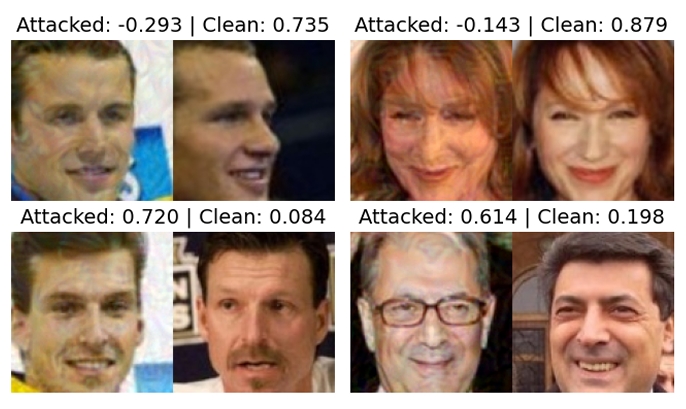
Featured in:
MD Thesis
Authors:
João Tremoço
Current face recognition methods are based on deep neural networks that require large amounts of data to be effective. The large datasets publicly available are mostly collections of wild celebrity face images. These datasets are not optimised for document security-related applications. Moreover, due to privacy concerns, ID-compliant face image datasets are small and hardly accessible. This scenario is not favourable, and there is room for optimisation. In this work, a novel face recognition approach focused on the mitigation of this problem is proposed. A strategy was devised to include sample quality in an angular margin loss function in order to optimise the training process for the scenario of ID and Travel documents. This was achieved by changing the margin parameter in ArcFace to an adaptive value dependant on each sample’s quality. The adaptive margin was formulated in such a way to increase with the increase in sample quality and as such, increase the loss value. To characterise sample quality, five different quality metrics closely related to ICAO standards were used: Blur, BRISQUE, FaceQNet, Face Illumination Quality and Pose Quality. Three specific benchmarks were designed to test the method’s performance across different scenarios: Unconstrained, constrained and strictly constrained.With the designed benchmarks, the developed method was tested and compared with the ArcFace and Softmax losses. Experiments made show that the adaptive margin method developed is superior to the standard angular margin loss function (ArcFace) for the ID-compliant scenario. More specifically, the face illumination quality based model proved to better perform in the constrained and strictly scenarios according to FNMR@FMR metrics. The results also indicate a superiority of the method in unconstrained face recognition, namely the blur score model shows the best results. Models with combinations of scores were also tested. They did not prove to be superior to the single score models, however a more regular result across benchmarks was achieved.
Content type: Thesis Presentation
Link: here
Upload Date:2024-10-13T13:46


© 2024 VISTeam | Made by Black Monster Media

Institute of Systems and Robotics Department of Electrical and Computers Engineering University of Coimbra